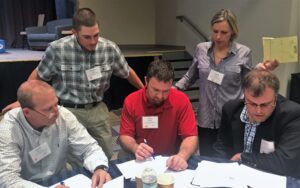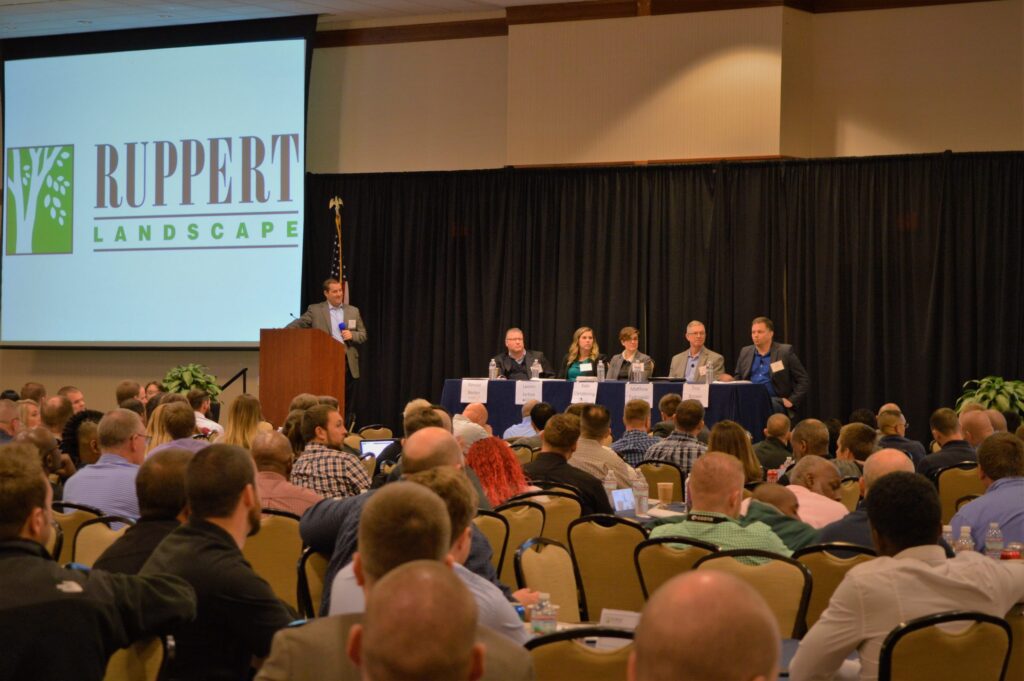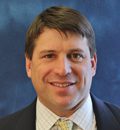 By Phil Key, President
By Phil Key, President
There is always a lot of information packed into Management Development Days (MDD), our annual two-day training event, and this year was no exception. This year, we were able to bring over 550 employees from all 23 branches together to celebrate accomplishments, learn from one another, and grow together as a company. This year’s theme, “Employee Powered, Customer Driven,” reminded us that our customers make our success possible—they pay our bills, provide our livelihoods, enable us to give back to our communities, and allow us to grow.  Along with that, however, is our strong, hardworking Ruppert team members who fuel all that we do for our customers. Our goal is to get to know our customers better to further understand their needs, to listen and communicate effectively with them, build lasting relationships, and do what is necessary to exceed their expectations.
Along with that, however, is our strong, hardworking Ruppert team members who fuel all that we do for our customers. Our goal is to get to know our customers better to further understand their needs, to listen and communicate effectively with them, build lasting relationships, and do what is necessary to exceed their expectations.
A few of the things we talked about at MDD included:
- What NOT To Do: Presenters Chad Prinkey and Doug Lotierzo of Neuberger & Company consulting demonstrated several “Don’ts” of customer service, including:
- Don’t make excuses. The customer doesn’t want to hear us lay blame, they want to hear a solution.
- Don’t overpromise. Set expectations that you know you can meet & exceed.
- Don’t take criticism personally. This may be the hardest advice to abide by, because we all take pride in our work and put our hearts into it. We all want to be appreciated for our efforts, and it’s sometimes hard to hear when a customer finds fault in the end result. We must try to understand that criticism of our work is NOT the same as criticism of ourselves, and we need to look deeper to discover what the real problem is and how we can fix it.
- Building Trust: Our keynote speaker, best-selling author Steve McClatchy of Alleer Training & Consulting, talked to the group about the importance of trust between a client and service provider and the tangible costs associated with low trust (i.e. low morale, low productivity, or lack of creativity to find solutions or new innovations). He described a client’s trust as “the unwavering belief that you [the service provider] will always act in my best interest.” Trust is built when the motivation comes from “want to” and not “have to”—as in, “we want to do what is best for our customer” and not “we have to fulfill the contract requirements.” The best way to build trust in a customer relationship is by taking initiative and proactively identifying problems and offering solutions. Do something to let them know you’re thinking about them and anticipating their needs, whether it’s a quick phone call, email or in-person visit. When we go the extra mile, we show our customers that we have their best interest at heart and they see this demonstrated through our actions, not just our words.
- Learning from our Customers: We realize that the best people to tell us about how we can improve customer service are, of course, our own customers. So, we invited five of our landscape management clients to take part in our customer panel, where they answered employees’ questions and provided their candid opinions on a variety of business and customer relations topics. We hope that the lessons learned in this session will give us a new perspective and help position us to provide better service to our clientele going forward.
 We are extremely grateful to our valued clients who agreed to take part in our landscape management customer panel. Pictured from left to right: Ronald Becker, Director of National Property Operations with Federal Realty Investment Trust (FRIT); Lauren Jarboe, Regional Portfolio Manager with Bozzuto Management Company; Kate Clendening, Senior Property Manager with Beco; Matthew Fadroswki, Portfolio Manager/Corporate Occupier & Investor Services with Cushman Wakefield; and Troy Brown, Senior Facilities Manager with Jones Lang LaSalle (JLL).
We are extremely grateful to our valued clients who agreed to take part in our landscape management customer panel. Pictured from left to right: Ronald Becker, Director of National Property Operations with Federal Realty Investment Trust (FRIT); Lauren Jarboe, Regional Portfolio Manager with Bozzuto Management Company; Kate Clendening, Senior Property Manager with Beco; Matthew Fadroswki, Portfolio Manager/Corporate Occupier & Investor Services with Cushman Wakefield; and Troy Brown, Senior Facilities Manager with Jones Lang LaSalle (JLL).
The investment the company makes in these two days is significant, and our biggest measure of success is if you are able to take key pieces of what you learned and put them to good use. Please share what you learned with others on your team who were not present. In doing so, you will help to maintain a company-wide dialogue and encourage a level of participation in the process, which will help to propel us forward in 2018 and beyond. Thanks to those who attended and we look forward to many more years to come!
 By Phil Key, President
By Phil Key, President